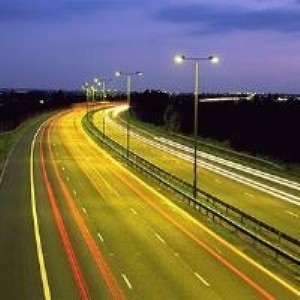Wiltshire Council proposes street lighting switch off
Local authorities in Wiltshire have proposed a new system of lighting management for the areas 20,000 street lights that hope to save money and move the council's CO2 emissions to a lower level, it was announced this week.
According to reports, council officials are mooting the idea of switching off or dimming street lights in low-traffic areas during the hours of midnight and 5:30am, in an effort to save the council money on it's outgoing fuel bills.
And low-energy solutions such as LED lighting, which have already been introduced at various intersections and across many illuminated bollards, could be used across the area to further cut down on costs.
The Conservative-led authority said the existing system cost the state £1.2 million annually, but a concerted effort and investment in 1,300 LED lamps will go some way towards cutting that.
Their efforts come in the wake of a number of councils across the UK adjusting their street lighting strategy to save money and reduce emissions, although some residential groups have opposed changes they feel would make areas less safe.
Bath and North East Somerset Council was the first to pioneer the use of LED lighting on streets and motorways, converting the lamps surrounding the area's Hicks Gate roundabout to brighter, more robust and long-lasting LED bulbs.
The trial, in conjunction with the Highways Agency, was expected to result in an overall saving of £4,500 per year, as well as reducing carbon emissions by as much as 25 tonnes.
And Liberal Democrat opposition councillor Jon Hubbard praised the Wiltshire authorities' efforts to follow in those footsteps.
"At the moment all the debate is whether they are on or off," he said.
"We believe significant savings can be made by switching to efficient LED lighting and we have previous proposed this but it was turned down. Much of financial and carbon savings proposed by the council could be achieved this way."

